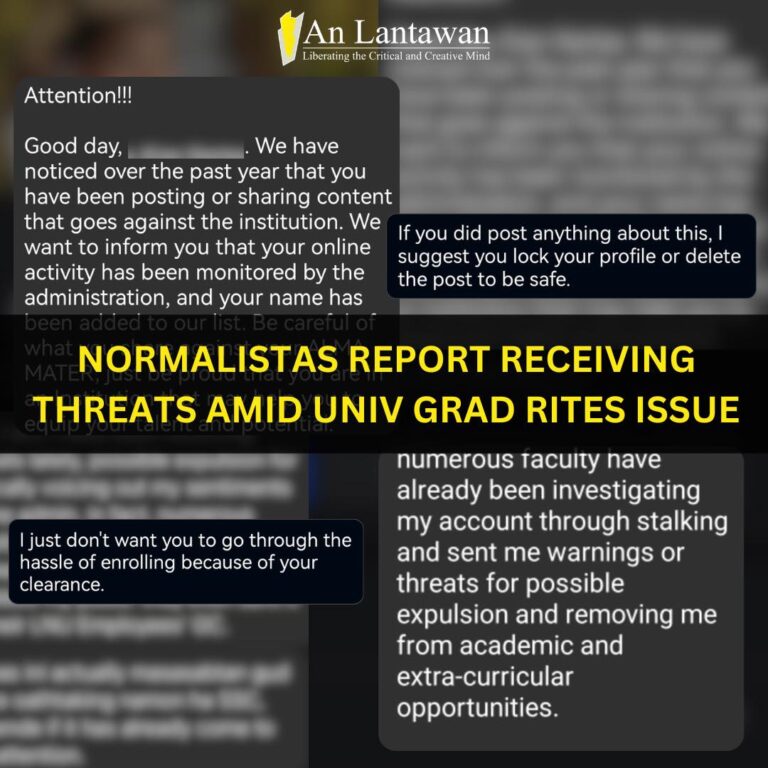
Photo courtesy of An Lantawan Facebook Page.
Leyte Normal University (LNU) students allegedly received threats and warnings of disciplinary action after criticizing the university’s recently concluded graduation ceremony on social media, according to the school’s official publication An Lantawan.
Students claimed they were targeted for expressing discontent with the graduation ceremony ticketing system, which limited attendance to the main venue.
One student told An Lantawan via Messenger, “Numerous faculty have already been investigating my [Facebook] account through stalking and sent me warnings or threats for possible expulsion and removing me from academic and extracurricular opportunities.”
The student requested anonymity, citing privacy concerns.
Another student reported receiving a message through Messenger, stating, “We want to inform you that your online activity has been monitored by the administration, and your name has been added to our list. Be careful of what you share against your ALMA MATER, just be proud that you are in an institution that may help you to equip your talent and potential.”
The university’s graduation rites, held on June 13 and 14, drew criticism for allegedly limiting attendance to the main venue for graduates with Latin honors and their parents.
Other students and parents were relegated to watching the ceremony on a screen in a separate hall or listening to it through a single speaker outside.
LNU President Dr. Evelyn Aguirre defended the ticketing scheme, saying it was necessary to “maintain the solemnity of the occasion.” She cited a previous graduation ceremony held at a larger venue where parents left immediately after and the event became chaotic.
Dr. Aguirre emphasized that holding the graduation within the university fostered a sense of belonging.
LNU officials have not been available for comment regarding the students’ allegations of threats and warnings.
The controversy highlights the growing tension between student freedom of expression and university administration’s authority, particularly in the age of social media.


